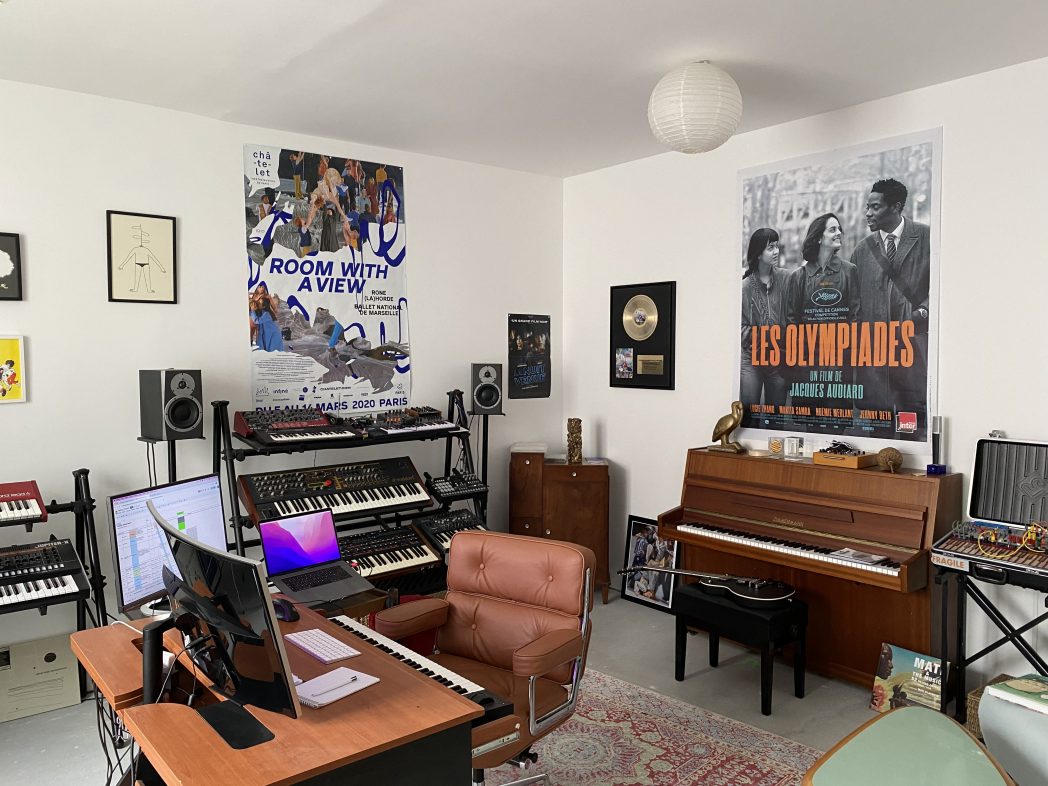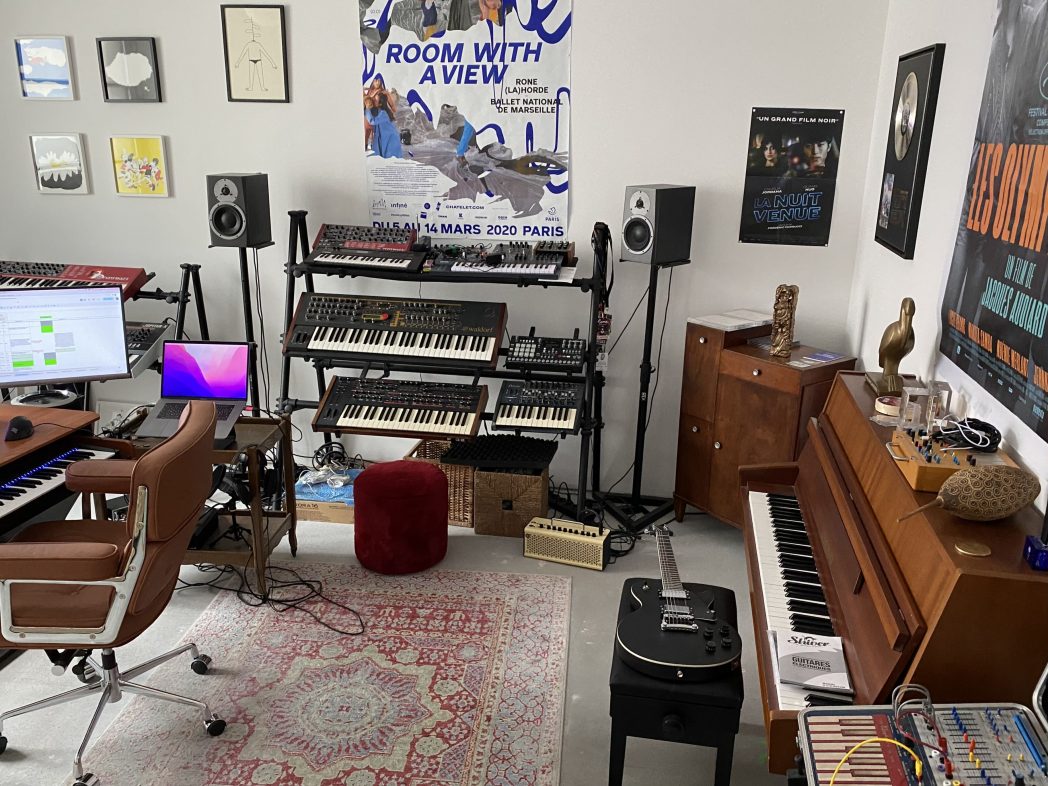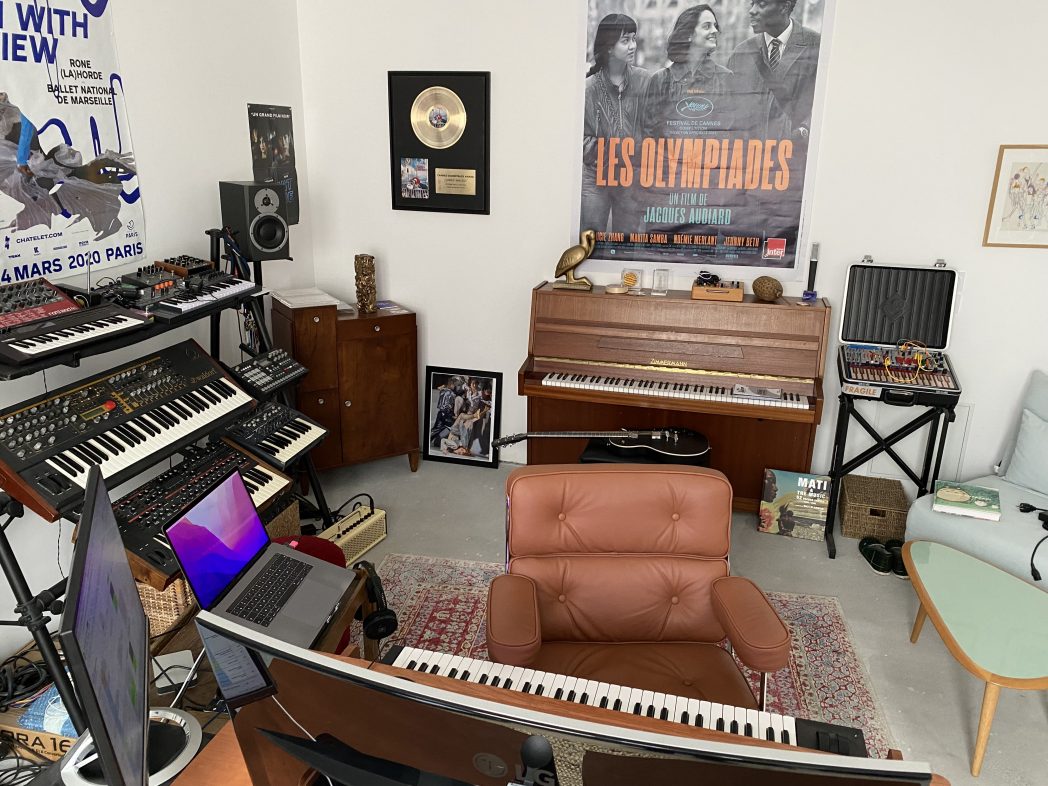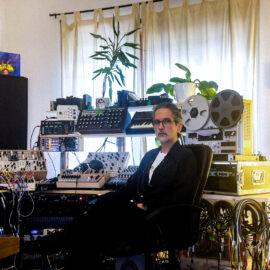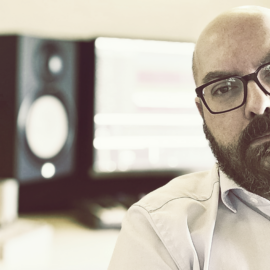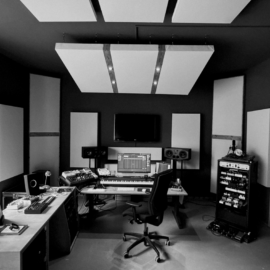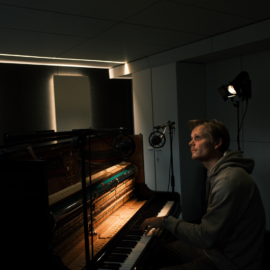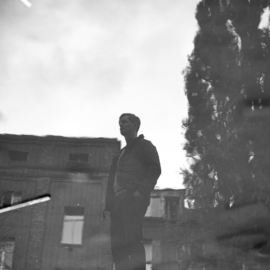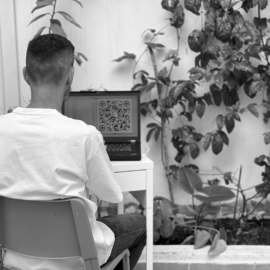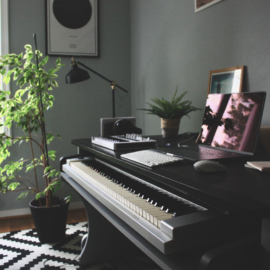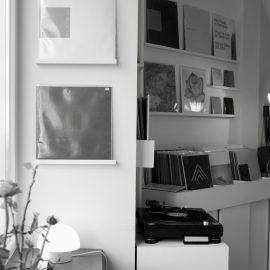Let’s start at the very beginning. Can you tell us how you got involved in composing, and what was your very first piece of gear?
I have the memory of always making music. I tried many instruments. At home, when I was little, we had a slightly out-of-tune piano on which I would play around. Later, I tried the saxophone and the drums, all self-taught and without ever truly excelling. The real revelation came when I discovered the computer and the first music software. There, a world opened up to me, and the realm of possibilities was immense.
How many different studio iterations have you gone through, and what does your final setup look like right now?
I believe I’ve had as many studios as relocations. For a long time, I was based in rather dark places, without natural light, where one loses track of time, like my studio in Berlin, which was located in a basement. I also remember an old garage in the Parisian suburbs… Now, I’m settled in Brittany, where my studio is much brighter and more inspiring. I’ve noticed that I’m quite sensitive to the environment of the room. Throughout all these years, I’ve collected quite a few synthesizers and machines, but in my studio, you’ll also find a piano, a guitar… I’ve worked in large studios with huge mixing consoles before, but in the end, it doesn’t really suit me. I prefer a simpler and lighter setup.
Tell us about your favourite piece of hardware.
The Buchla Music Easel! The sounds come out spontaneously, and there’s an element of randomness about it that I really like. This machine is full of poetry!
And what about the software that you use for production?
Ableton Live. I’ve been using it since the beginning, and it’s really the backbone. After that, I use a range of plug-ins, like Soundtoys, for example, or different VSTs like Massive X or Izotope.
Is there a particular piece of gear that you’re just dying to get your hands on, and do you think one day you’ll have it?
Maybe the EMS VCS3, a modular synth used by Brian Eno that he once gave to David Bowie. Hard to find…
Can you please share some aspects of sound design in your work?
What’s special about the way I work is that I don’t necessarily start with a sound or a melody. I don’t compose a melody on the piano and then arrange it. It’s a parallel process of research where I sculpt sound textures, and sometimes that inspires a melody. But sometimes, it starts with a little melody that inspires a sound texture. It’s all intertwined.
Any particular new techniques that you tried out for your new album?
For some time now, I’ve been using granular effects more, especially the Clouds by Mutable Instruments. It’s incredibly powerful and has had a significant influence on my sound recently.
What does your live setup look like, and what do you bring with you when you travel for an extensive tour?
My setup depends on the project. When I’m touring solo, I have a lot more room for improvisation, so I bring along synths and my Theremin, as well as my MIDI controllers and laptop. But when I’m playing with 18 dancers or a 90-piece orchestra, I tend to use effects with a more written texture because there’s less room for improvisation. Ableton Live, of course, remains the common base.
What is the most important environmental aspect of your current workspace, and what would be a particular element that you would improve on?
Bright, Zen, good energy. I’ve got a superb room at home, it’s a lovely volume, and I’m really comfortable here. I just need to do a little more work on the acoustics, which aren’t perfect. But it’ll be done soon!
What can you tell us about your overall process of composition? How are the ideas born, where do they mature, and when do they finally see the light?
It all remains very mysterious; sometimes, I search for days without finding anything, and then, suddenly, it just comes. There are no rules; it truly comes through experimentation. For example, when working on a film score, I will improvise until something clicks. The process is ultimately very instinctive, not cerebral. Where I find pleasure is in the raw part, the creation. I manipulate my machines in a very instinctive way; I’m not a geek. Lately, I’ve even preferred to delegate a portion of the mixing and post-production to producer friends, like SiBegg, with whom I have a good understanding, or Cubenx, who has introduced me to new machines and how to use them. We complement each other well and are efficient together. In processes like film music, where quick delivery is sometimes required, I handle the majority of the work, and the team helps me refine it.
After the piece is complete, how do you audition the results? What are your reactions to hearing your music in a different context, setting, or sound system?
It’s true that when you work on a track for a long time using the same sound system, you can lose perspective. One thing that works well for me is to step out of my house and listen to it on AirPods, much like many people listen to music today. Not only does it allow me to assess the sound on consumer hardware, but there’s also a mental aspect to it. Stepping out of the bubble and walking along the sea gives a different perspective on the track.
Do you ever procrastinate? If so, what do you usually find yourself doing during those times?
Yes, all the time! My life is one big procrastination! But after 15 years of experience, I’ve realised something: before, I used to get stressed out by the passage of time, then having to work in a hurry. Now I’ve realised that I need the pressure of the deadline, preceded by a period of downtime when I think things through and prepare the ground. It’s part of my creative process.
What gets you inspired?
The sea… In fact, the secret lies not so much in inspiration but in expiration, as the poet Jean Cocteau once said. In our society, we are bombarded with information. Everything is already within us; the most challenging part is clearing our minds and giving shape to the inner chaos.
And finally, what are your thoughts on the state of “electronic music” today?
It’s a complicated question. Electronic music is so vast and varied. So, yes, I got a kick out of Aphex Twin, but if you talk to me about EDM, I’m not interested at all. And now electronic music is a bit diluted in all kinds of music… The tracks are blurred…. look at guys like Daft Punk; they started with a very club and very electronic thing, then it became a kind of soul pop. People put me in the electronic category because my instruments are electronic machines, but I don’t feel like I’m part of any particular scene. I’ve just played with a classical orchestra, I’ve worked with choirs, and it all went really well together.
